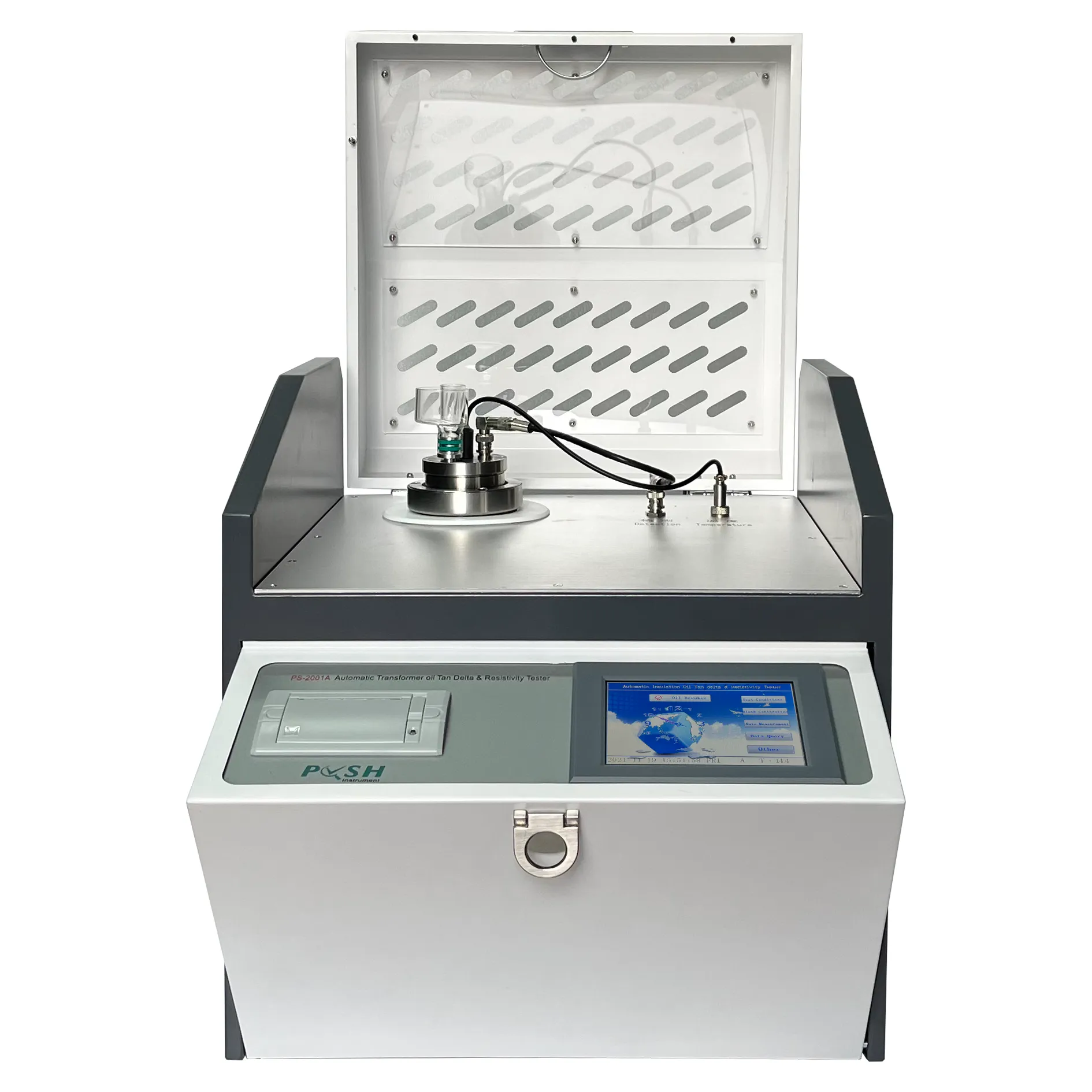 English
English


Dielectric Strength Testing Equipment for Electrical Insulation Assessment and Quality Control
Understanding the Dielectric Strength Tester Importance and Applications
In the world of electrical engineering and materials science, the dielectric strength tester plays a critical role in evaluating the electrical insulation properties of various materials. It is essential for ensuring safety, reliability, and performance in a myriad of applications ranging from consumer electronics to high-voltage power systems. This article delves into what dielectric strength means, how testers work, and their significance in different industries.
What is Dielectric Strength?
Dielectric strength refers to the maximum electric field that a material can withstand without experiencing breakdown or failure. It is typically measured in volts per unit thickness (V/mil or kV/mm) and is a vital property of insulating materials. When the applied voltage exceeds this threshold, the material becomes conductive, leading to potential short circuits, equipment damage, or even hazardous situations such as electrical fires.
How Dielectric Strength Testers Work
Dielectric strength testers apply a high voltage across the insulation material and measure the point at which the dielectric fails (breaks down). The testing process generally involves the following steps
1. Preparation The material under test is prepared, ensuring proper dimensions and cleanliness. This might include cutting samples into specified sizes or cleaning surfaces to eliminate contaminants.
2. Placement The specimen is securely placed in the testing apparatus which includes electrodes that will apply the voltage. Depending on the tester, it could involve flat plates, cylindrical surfaces, or a cup configuration.
3. Voltage Application The tester gradually increases the voltage until breakdown occurs. This might be done using a ramping method, where voltage increments are applied at specified rates.
4. Measurement The tester records the voltage at which breakdown occurs. This data is crucial for assessing the material's quality and its suitability for specific applications.
dielectric strength tester

5. Analysis Post-test analysis helps in understanding the nature of the breakdown, whether it was sudden or gradual, and the exact voltage at which the material failed. This information can inform material selection and design decisions.
Applications of Dielectric Strength Testing
Dielectric strength testing is employed across various industries for multiple purposes
- Electrical & Electronics In the manufacturing of electrical components such as transformers, capacitors, and circuit boards, dielectric strength testing ensures that insulation materials can withstand the operational voltages they will encounter.
- Aerospace Materials used in this sector must meet stringent safety and performance standards. Dielectric strength testing ensures that the insulation in wiring and components can endure the extreme environments experienced in flight.
- Automotive As vehicles become increasingly electrified, particularly with the growth of electric vehicles (EVs), the demand for reliable dielectric insulation in components such as batteries and power electronics has surged. Testing helps mitigate risks associated with electrical failures.
- Construction In building projects, dielectric strength testing is used for cables and insulation materials to prevent electrical hazards, ensuring compliance with safety regulations.
- Renewable Energy In wind and solar energy systems, dielectric strength testing of insulation materials is vital for the longevity and efficiency of components under varying environmental conditions.
Conclusion
The dielectric strength tester is an indispensable tool in the quality assurance and safety evaluation of electrical insulation materials. By determining the breakdown point of various materials, it plays a pivotal role in mitigating risks associated with electrical failures, ultimately protecting both life and property. As technology evolves and new materials are developed, the significance of dielectric strength testing will continue to grow, ensuring that our electrical systems remain safe and reliable in an increasingly connected world. Whether in manufacturing, aerospace, automotive, or renewable energy, the dielectric strength tester is key to innovation and safety.
-
Differences between open cup flash point tester and closed cup flash point testerNewsOct.31,2024
-
The Reliable Load Tap ChangerNewsOct.23,2024
-
The Essential Guide to Hipot TestersNewsOct.23,2024
-
The Digital Insulation TesterNewsOct.23,2024
-
The Best Earth Loop Impedance Tester for SaleNewsOct.23,2024
-
Tan Delta Tester--The Essential Tool for Electrical Insulation TestingNewsOct.23,2024





